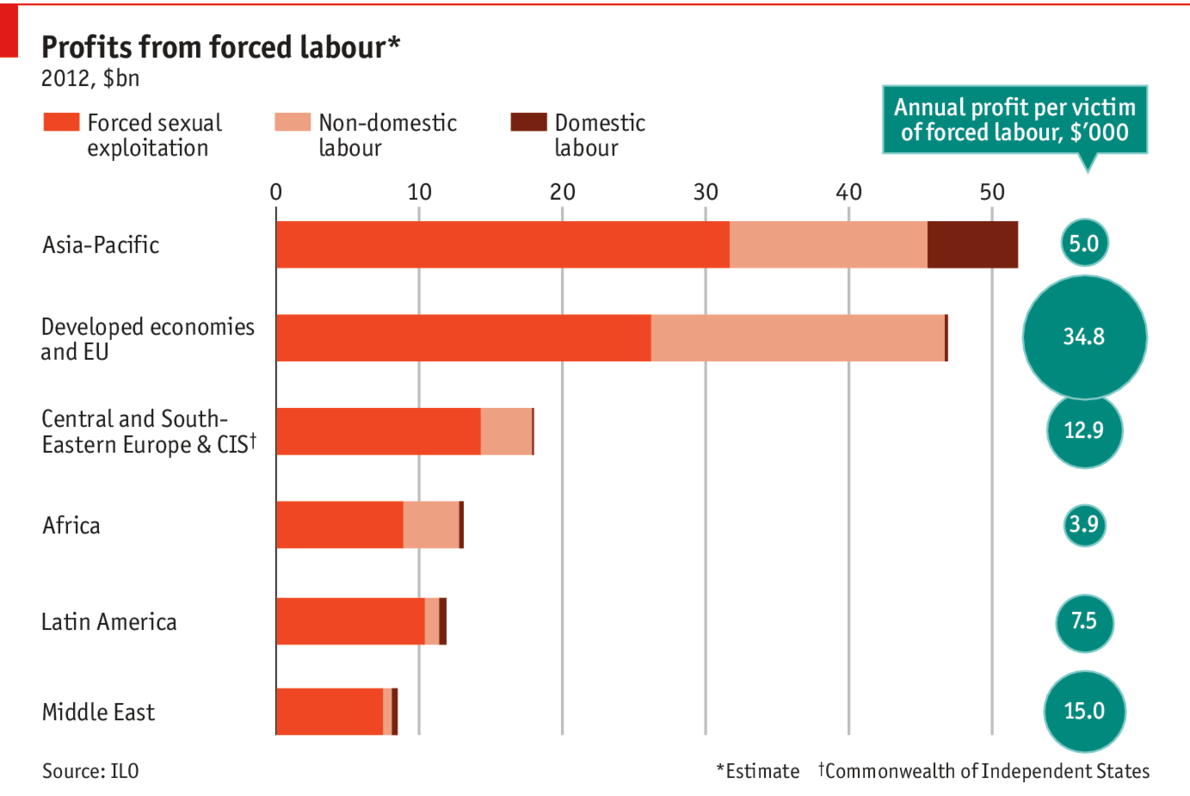Saturday, May 31, 2014
Friday, May 30, 2014
Mere Association Bias
“John's supplier took him to the best steakhouse in town and picked up the check. The next
time it was time to buy new supplies, John associated the supplier with pleasant feelings.
People can influence us by associating a product, service, person, investment, or
a situation with something we like. Many times we buy products, enter
relationships, and invest our money merely because we associate them with
positive things. No wonder advertisers or politicians connect what they want to
sell with things we like and avoid associating themselves with negative events.
Pair a sports car with something that produces a positive feeling - a beautiful and
sexy model- and we automatically associate the car with pleasure.”
-Seeking Wisdom from Darwin to Munger
Do people do what they perceive is in their best interest?
Do people do what they perceive is in their best interest?
Yes, one basic trait that aU individuals share is self-interest. We are interested in
protecting our close family and ourselves. Why?
Since natural selection is about survival and reproduction, and individuals either
survive or die and reproduce or not, it makes sense that individuals are predisposed
to act in ways that enhance their own prospects for survival and reproduction. The
ancestral environment consisted of limited resources, including reproductive
resources, and fierce competition. Self-interest came naturally.
What if our ancestors were composed of altruists - individuals that helped
others at their own expense? Altruistic individuals are at a disadvantage. They are
always vulnerable to some mutants that take advantage of them. Altruistic
behavior cannot evolve by natural selection since natural selection favors
individuals that are best at promoting their own survival and reproductive
success. Only behavior that is selfish or for the mutual good is in an individual's
self-interest and therefore favored by natural selection. Some behavior may under
certain conditions look like altruism but can often be explained by self-benefit.
Social recognition, prestige, fear of social disapproval, shame, relief from distress,
avoidance of guilt, a better after-life or social expectations are some reasons
behind "altruistic" acts.
- Seeking wisdom from Darwin to Munger
FW: If extraterrestrials are monitoring us, this is what they’re seeing…
Feed: The Big Picture
Posted on: Thursday, May 29, 2014 20:00
Author: Barry Ritholtz
Subject: If extraterrestrials are monitoring us, this is what they're seeing…
|
|
Thursday, May 29, 2014
Wednesday, May 28, 2014
Misjudgement #7
“…And here, one of the cases the psychologists use is Kitty Genovese, where all these people
-- I don’t know, 50, 60, 70 of them -- just sort of sat and did nothing while she was slowly
murdered. Now one of the explanations is that everybody looked at everybody else and
nobody else was doing anything, and so there’s automatic social proof that the right thing
to do is nothing. That’s not a good enough explanation for Kitty Genovese, in my
judgment. That’s only part of it. There are microeconomic ideas and gain/loss ratios and
so forth that also come into play. I think time and time again, in reality, psychological
notions and economic notions interplay, and the man who doesn’t understand both is a
damned fool.
Big-shot businessmen get into these waves of social proof. Do you remember some years
ago when one oil company bought a fertilizer company, and every other major oil
company practically ran out and bought a fertilizer company? And there was no more
damned reason for all these oil companies to buy fertilizer companies, but they didn’t
know exactly what to do, and if Exxon was doing it, it was good enough for Mobil, and
vice versa. I think they’re all gone now, but it was a total disaster. “
via: Munger
Monday, May 26, 2014
Sunday, May 25, 2014
Saturday, May 24, 2014
Notes from the Checklist Manifesto
Weekend Longform Links
It's T. Boone Pickens' Birthday — Here Are 22 'Boone-isms' On How To Win In Life And Business http://www.businessinsider.com/t-boone-pickens-best-quotes-2014-5?op=1 …
Learning About Humanity on Public Transportation | VICE United States http://www.vice.com/read/learning-about-humanity-on-public-transportation …
10 Brilliant Business Lessons From Ben Horowitz http://bit.ly/1o6Bz1I
Lunch with the FT: Tim Geithner http://www.ft.com/intl/cms/s/2/2e13cb90-dabb-11e3-8273-00144feabdc0.html#axzz324oGApWx …
What Do Animals See in a Mirror? http://nautil.us/issue/13/symmetry/what-do-animals-see-in-a-mirror …
Smile, You’re on Worldwide Webcam – http://narrative.ly/the-spies-among-us/smile-youre-on-worldwide-webcam/ …
I went undercover on Ashley Madison to find out why women cheat http://www.dailydot.com/opinion/ashley-madison-why-women-cheat/ …
How will you measure your life http://hbr.org/2010/07/how-will-you-measure-your-life/ar/pr …
SodaStream’s CEO on Turning a Banned Super Bowl Ad into Marketing Gold http://hbr.org/2014/01/sodastreams-ceo-on-turning-a-banned-super-bowl-ad-into-marketing-gold/ar/pr …
Can Starbucks Do for the Croissant What it Did for Coffee? http://bit.ly/1cGUiGv http://www.smithsonianmag.com/innovation/can-starbucks-do-for-the-croissant-what-it-did-for-coffee-89521645/?all …
The Case for Reparations http://www.theatlantic.com/features/archive/2014/05/the-case-for-reparations/361631/?src=longreads …
Americans In Paris http://www.thisamericanlife.org/radio-archives/episode/165/transcript …
Friday, May 23, 2014
Where does Pecking order come from ?
Pecking order also matters. As we strive for status, hierarchies emerge.
Norwegian zoologist Thorleif Schjelderup-Ebbe discovered that in the world of
hens there is a linear hierarchy where every hen knows its place. Science writer
Robert Wright says in The Moral Animal: "Throw a bunch of hens together, and,
after a time of turmoil, including much combat, things will settle down.
Disputes ... will now be brief and decisive, as one hen simply pecks the other,
bringing quick deferral."
The pecking order determines who gets the first chance to eat, and which hen
can peck the other hens. Each hen knows who it can dominate, and in turn, who
will dominate it.
-Seeking wisdom from Darwin to Munger
The Social Animal
The Social Animal
We do not care about our reputation in towns where we are only passing
through. But when we have to stay some time we do care. How much
time does it take? A time proportionate to our vain and paltry existence.
- Blaise Pascal (French mathematician and philosopher, 1623-1662)
David Foster Wallace
“Because here's something else that's weird but true: in the day-to-day trenches of adult life, there is actually no such thing as atheism. There is no such thing as not worshipping. Everybody worships. The only choice we get is what to worship. And the compelling reason for maybe choosing some sort of god or spiritual-type thing to worship--be it JC or Allah, be it YHWH or the Wiccan Mother Goddess, or the Four Noble Truths, or some inviolable set of ethical principles--is that pretty much anything else you worship will eat you alive. If you worship money and things, if they are where you tap real meaning in life, then you will never have enough, never feel you have enough. It's the truth. Worship your body and beauty and sexual allure and you will always feel ugly. And when time and age start showing, you will die a million deaths before they finally grieve you. On one level, we all know this stuff already. It's been codified as myths, proverbs, clichés, epigrams, parables; the skeleton of every great story. The whole trick is keeping the truth up front in daily consciousness.”
Via: Intelligentlife
Thursday, May 22, 2014
Wednesday, May 21, 2014
FW: Manhattan and Brooklyn Rents Continue to Rise
Feed: The Big Picture
Posted on: Wednesday, May 21, 2014 14:30
Author: Barry Ritholtz
Subject: Manhattan and Brooklyn Rents Continue to Rise
| Source: Miler Matrix Okay, that ought to be enough real estate for a while . . . |
FW: Behavioral Test: What Are the World’s Deadliest Animals?
Feed: The Big Picture
Posted on: Wednesday, May 21, 2014 12:00
Author: Barry Ritholtz
Subject: Behavioral Test: What Are the World's Deadliest Animals?
|
|
Linkfest
· Lunch with the FT: Tim Geithner http://www.ft.com/intl/cms/s/2/2e13cb90-dabb-11e3-8273-00144feabdc0.html#axzz324oGApWx …
· What Do Animals See in a Mirror? http://nautil.us/issue/13/symmetry/what-do-animals-see-in-a-mirror …
· Smile, You’re on Worldwide Webcam – http://narrative.ly/the-spies-among-us/smile-youre-on-worldwide-webcam/ …
· Modi won the Indian election on Twitter, too http://theatln.tc/RZWfe9
· The leaked New York Times innovation report is one of the key documents of this media age http://www.niemanlab.org/2014/05/the-leaked-new-york-times-innovation-report-is-one-of-the-key-documents-of-this-media-age/ …
· Tim Geithner : A NYT bio http://www.nytimes.com/2014/05/11/magazine/what-timothy-geithner-really-thinks.html?pagewanted=all&_r=2 …
· Why no one other than economists are allowed to leave academia and work etc. http://edge.org/conversation/this-thing-for-which-we-have-no-name …
· The Food Lab: The Hard Truth About Boiled Eggs | Serious Eats: http://www.seriouseats.com/2014/05/the-secrets-to-peeling-hard-boiled-eggs.html#.U3IeAFT4mls.twitter …
· Not a Girl, Not Yet a Woman: the Two Sides of Miley Cyrus http://www.elle.com/pop-culture/cover-shoots/miley-cyrus-may-cover-story … via @ELLEMagazine
· The Inside Story of Oculus Rift and How Virtual Reality Became Reality | Gadget Lab | WIRED http://wrd.cm/1koNjJK
Tuesday, May 20, 2014
FW: Most Lethal Actors of All Time, by # of On-Screen Kills
Author: Barry Ritholtz
Subject: Most Lethal Actors of All Time, by # of On-Screen Kills
| click for larger chart Da vinner is Ah-nold by a mile . . . |
FW: Modern slavery
Feed: Graphic detail
Posted on: Tuesday, May 20, 2014 10:49
Author: P.J.W. and L.P.
Subject: Modern slavery
| Counting the cost of forced labour
THE idea of treating other humans like chattel seems as antiquated as it is barbaric. But it is big business. Forced labour produces profits of about $150 billion annually, according to a report published today by the International Labour Organisation (ILO). Sexual exploitation accounts for a fifth of all victims but two-thirds of profits. The most lucrative region for this form of slavery, generating more than $30 billion in 2012 alone, is Asia. The average annual profits per victim of sexual exploitation are $22,000—more than four times those gained from non-domestic labour and almost ten times the profits from domestic work. The ILO defines forced labour as involuntary work as a result of force, fraud or deception when a penalty or the threat of a penalty is used to coerce. It puts the number of people in these conditions at 21m. Others, such as the Global Slavery Index, place the number as high as 30m—a partially visible workforce that is about the...Continue reading |








